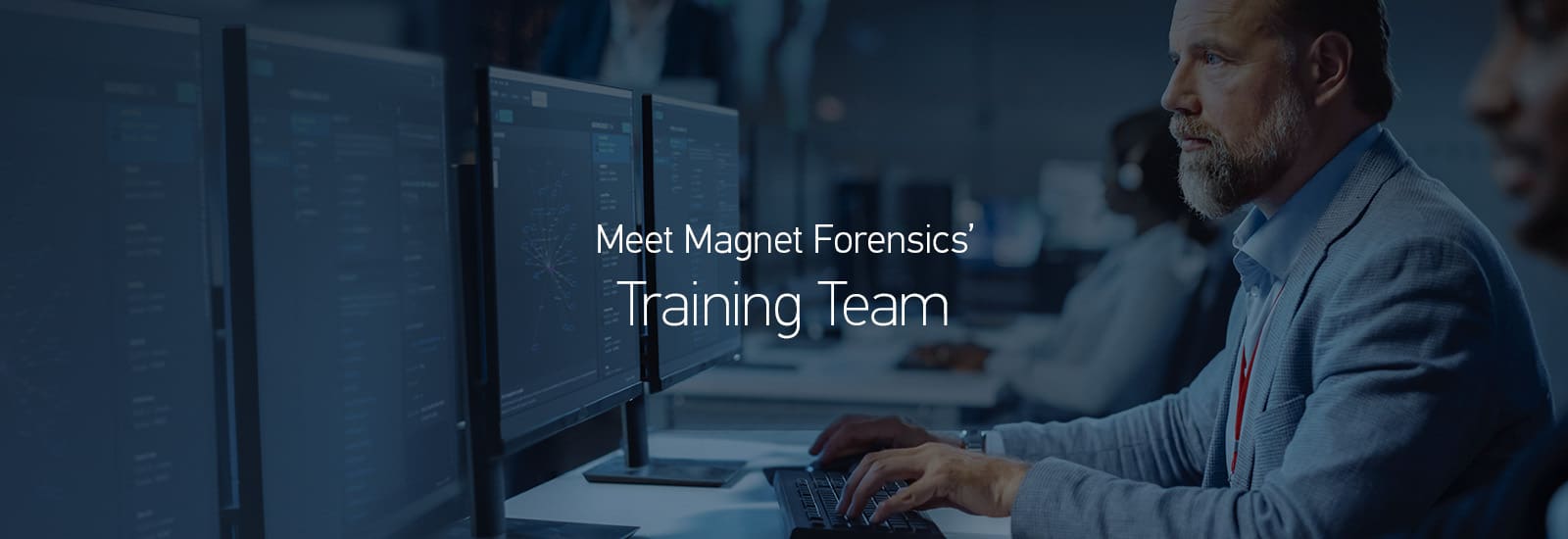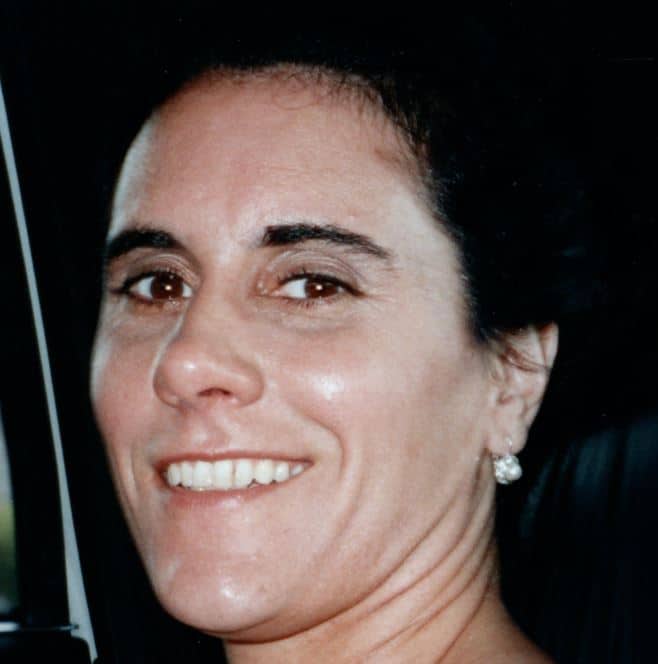
Meet the Magnet Forensics’ Training Team: Denise Duffy
MF: Tell us about your life before becoming a Trainer. 
DD: Before joining the Magnet family, I was a law enforcement officer for 25 years. Throughout my career, I was fortunate to be a part of many different units: patrol officer, school resource officer, Narcotics, Investigations, and Major Investigations. One thing our department didn’t have was a Computer Crimes Unit. Seeing a need, with the support of my chief, I started one.
I joined an ICAC task force and was assigned full-time to a regional digital forensics lab. I handled all the digital and mobile forensics for my department and assisted with forensics exams for other federal, state, and local agencies.
After retiring from law enforcement, I worked in the private sector doing digital and mobile forensic investigations, including intellectual property theft, civil cases, and intrusion and incident response.
MF: What made you want to be a Trainer?
DD: Once I became involved in forensics, it was evident that there were not enough of us doing the job. I wanted to help other agencies train more digital investigators, so I started volunteering my time to teach for IACIS. I had many dedicated instructors who assisted me in my journey, and I wanted to give back.
MF: What type of training have you taken part in personally? What is your favorite part of the role?
DD: I have been a student in a multitude of training courses (too many to list) from various agencies, including Magnet, U.S. Secret Service Training at the National Computer Forensics Institute, National White Collar Crime (NW3C) courses, many Internet Crimes Against Children Training (ICAC) courses, IACIS training, CompTIA training, InfoSec, X-Ways, Access Data courses, and BlackBag Technologies Training.
My favorite part of the role of a student is learning something new and how it all connects and then being able to bring that knowledge to my students.
MF: What excites you the most about a new class?
DD: I’ve always loved helping others, and teaching is an extension of that for me. When a student walks away with more knowledge than they came in with, it makes teaching meaningful. I am honored to be a part of that “ah-ha” moment when students grasp a concept they have been struggling with.
Also, the world needs more forensic examiners, and I’m proud to be a part of that solution.
MF: Do you ever learn anything from the students?
DD: I always learn something from the students. Different departments and organizations have unique workflows. It’s such a vast field that every interaction yields some knowledge.
MF: Is there a particular moment that stands out the most to you in your career in the classroom?
DD: It’s not the classroom moments that stand out; it’s the after-classroom moments. It’s seeing a student for a second class because they got so much out of the first one. It’s the email I get thanking me for taking extra time to explain something, or the question I get on LinkedIn two years later, which tells me that I made an impact on that student, and they find me approachable. These are the moments that stand out to me.
MF: What do students get out of training in person that they can’t get on their own?
DD: Nothing beats in-person training. Working with an instructor face-to-face, collaborating with peers, networking, and having a dedicated time and space to learn enhances the educational experience.
MF: How prepared do you feel students are to use Magnet Forensics products after taking the training course?
DD: Very prepared. The Magnet training courses give students the tools, knowledge, and confidence to use Magnet AXIOM and other products effectively.
MF: What is most unique about Magnet Forensics’ approach to training?
DD: Magnet AXIOM uses an artifacts-first approach. Magnet instructors teach the students how to correctly interpret the evidence parsed by the software and show them how that evidence relates to their investigation. This results in cases being solved quicker.
MF: Why do you think certification is important to examiners?
DD: Certification is necessary because it demonstrates that the examiner is proficient in using the forensic tool. It adds credibility to the examiner’s findings when testifying in a court of law. Magnet certifications offer this as they are distinguished in over 92 countries.
MF: How do you manage to keep up on the latest trends in digital forensics?
DD: Training. I take classes and continue my education constantly. I also take courses outside of forensics to help with an overall view of Computer Science. In addition to the phenomenal Magnet training, I hold a CFCE (Certified Forensic Computer Examiner), CEH (certified ethical hacker), Sec+, and am currently working on my PennTest+. Reading articles and white papers is excellent, but in my mind, nothing beats actual training.
MF: What trends do you see coming down the pipeline in digital forensics?
DD: I think the future of digital forensics will involve extensive IoT (the internet of things). Every crime scene seems to have a host of IoT devices that can hold evidence of a crime.
MF: Any final words of wisdom you’d like to share?
DD: Never stop training.